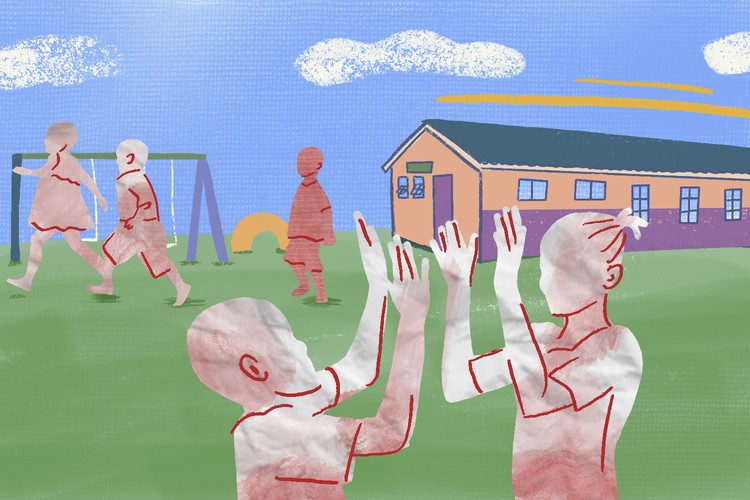
19 November 2025
The Funda Uphumelele National Survey shows how far we still have to go to make sure every 10-year-old can read for meaning. Graphic: Lisa Nelson
In the 2019 State of the Nation Address, President Cyril Ramaphosa promised that every ten-year-old in South Africa would read for meaning by 2030. Six years later, the first-ever Funda Uphumelele National Survey (FUNS) has shown us just how far we still have to go.
FUNS, released in November 2025 by the Department of Basic Education (DBE), gives South Africa its first comprehensive picture of early-grade reading in Grades 1 to 4 across all 11 official languages. For the first time, we can understand children’s reading abilities, from the first letters they say in Grade 1 to the comprehension expected by Grade 4, against the DBE’s language-specific reading benchmarks. FUNS bridges the gap between early-childhood readiness and later performance in the South African Systemic Evaluation (SASE) and the Progress in International Reading Literacy Study (PIRLS).
The results are sobering. Only about 30% of grade 3 learners are reading at the expected level in their home language. By Grade 4, fewer than half have reached the Grade 3 home language benchmark. Similar to the findings in PIRLS and SASE, language and socio-economic background continue to be a determining factor, with learners from wealthier backgrounds, and those tested in Afrikaans and English outperforming their peers.
For the first time, provinces have a clear view of how learners perform before the end of the Foundation Phase. And because the FUNS team will develop instruments that provinces and teachers can use in classrooms, these could be used to identify specific grades, languages, and districts that require targeted support.
But the lesson from other assessments such as PIRLS and SASE is clear: measurement without follow-through changes little. South Africa has produced numerous valuable reports and participated in several international and regional studies on reading outcomes, yet few have shifted, at scale, the system’s response to our persistent reading crisis. The launch of FUNS should therefore mark the end of data collection for its own sake, and the beginning of data-driven action and accountability.
The task before the DBE and provincial education departments now is to use these results and those of future international, regional and national assessments, to ensure that all children, across all language groups and socio-economic backgrounds, build the foundational reading skills that enable them to read for meaning by age ten.
As Minister Siviwe Gwarube emphasised: “We are not measuring for the sake of measuring. The value of good data: it gives us the power to act intelligently, not blindly.”
Our challenge now is not a lack of information, it is a lack of follow-through. As a country, we are not short of plans, but too many remain weak, uncoordinated, and unfunded, with limited accountability for implementation.
That is why the Right to Read Campaign, a broad alliance of civil society organisations, education experts, and literacy advocates, is calling for the development and adoption of binding regulations for the Foundation Phase.
These regulations would clarify the state’s obligations and establish clear minimum standards for the four Ts - texts, time, training and testing - that are key in supporting children learning to read.
The regulations would
If FUNS tells us where we are, regulations can assist in determining where we go next. The evidence is clear; what’s missing is the resolve to act on it. Binding reading regulations can turn the President’s promise into practice, ensuring that the commitment to reading for meaning is not dependent on political cycles or good intentions, but protected by law. The story must end with accountability, where reading for meaning is not treated as an aspiration, but as a right owed to every child.
Views expressed are not necessarily those of GroundUp.